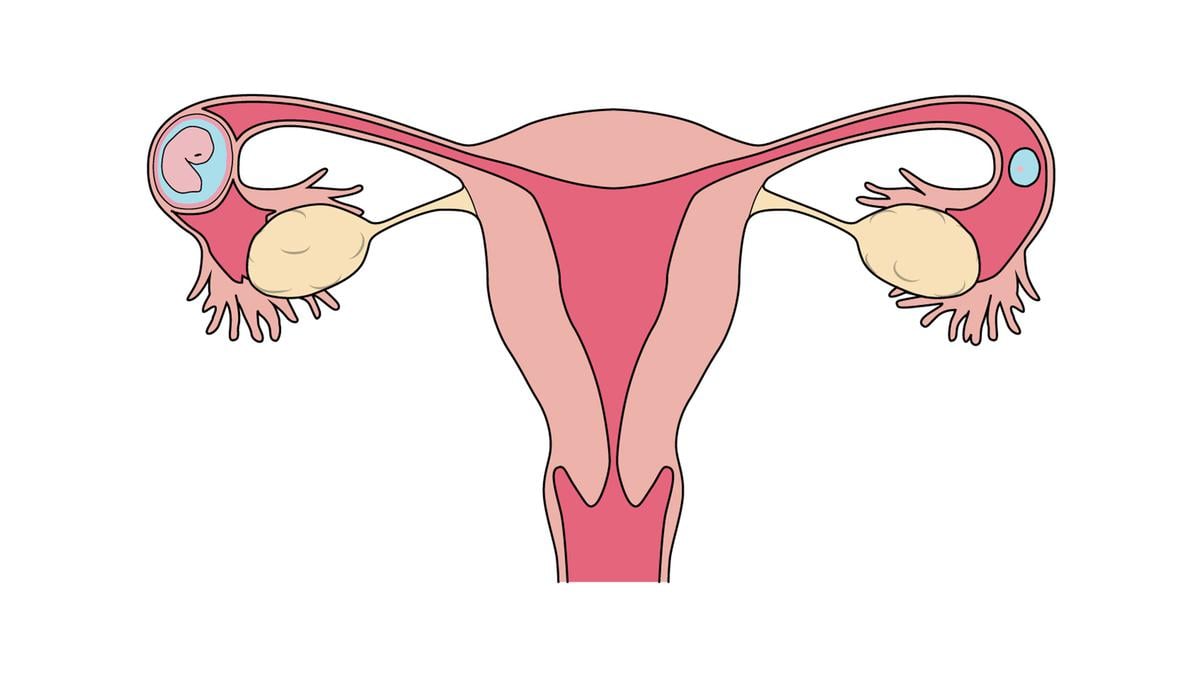Extrauterine Pregnancy: Symptoms, Causes, Treatment
What are the symptoms of extrauterine pregnancy?
An extrauterine pregnancy, also known as an ectopic pregnancy, occurs when a fertilized egg implants and grows outside the uterus, usually in one of the fallopian tubes. Symptoms of an ectopic pregnancy can vary, but common signs and symptoms may include:
- Abdominal or pelvic pain: This is the most common symptom of an ectopic pregnancy. The pain may be sharp and stabbing and may be on one side of the abdomen or pelvis.
- Vaginal bleeding: Light vaginal bleeding may occur, which can be mistaken for a regular menstrual period. The bleeding may be lighter or heavier than usual.
- Shoulder tip pain: In some cases, the ectopic pregnancy can cause irritation of the diaphragm, leading to referred pain felt in the shoulder area.
- Pain on one side of the body: Pain can also be felt on one side of the body, often in the shoulder, neck, or rectum.
- Weakness, dizziness, or fainting: If the ectopic pregnancy ruptures and causes internal bleeding, it can lead to symptoms such as weakness, dizziness, or fainting.
- Gastrointestinal symptoms: Some women may experience symptoms such as nausea, vomiting, diarrhea, or bloating.
It’s important to note that these symptoms can also be caused by other conditions, such as a miscarriage or a normal pregnancy. However, if you experience any of these symptoms and suspect you may have an ectopic pregnancy, it’s important to seek medical attention from your healthcare provider immediately. Ectopic pregnancies can be life-threatening if not treated promptly.
What are the causes of extrauterine pregnancy?
An extrauterine pregnancy, or ectopic pregnancy, occurs when a fertilized egg implants and grows outside the uterus, usually in one of the fallopian tubes. The exact cause of ectopic pregnancy is not always known, but several factors may increase the risk, including:
- Damaged fallopian tubes: Damage to the fallopian tubes can be caused by inflammation, infection, or scarring from previous surgeries or conditions such as pelvic inflammatory disease (PID).
- Abnormalities in the fallopian tubes: Congenital abnormalities or structural issues in the fallopian tubes can increase the risk of ectopic pregnancy.
- Hormonal factors: Hormonal imbalances or abnormalities can affect the movement of the fertilized egg through the fallopian tube and increase the risk of ectopic pregnancy.
- Previous ectopic pregnancy: Women who have had an ectopic pregnancy in the past are at an increased risk of having another ectopic pregnancy.
- Maternal age: Women over the age of 35 may be at a higher risk of ectopic pregnancy.
- Smoking: Smoking tobacco can increase the risk of ectopic pregnancy. So quit smoking.
- Assisted reproductive technology (ART): The use of ART, such as in vitro fertilization (IVF), can increase the risk of ectopic pregnancy, especially if there are abnormalities in the fallopian tubes.
It’s important to note that in some cases, the cause of ectopic pregnancy may not be identifiable. Ectopic pregnancy is a serious condition that requires prompt medical attention. If you suspect you may have an ectopic pregnancy, it’s important to seek medical help immediately.
What is the treatment for extrauterine pregnancy?
The treatment for an extrauterine pregnancy, also known as an ectopic pregnancy, depends on several factors, including the location and size of the ectopic pregnancy, the presence of symptoms, and the woman’s overall health. Treatment options may include:
- Expectant management: In some cases, especially if the ectopic pregnancy is small and the woman is not experiencing symptoms, the healthcare provider may choose to monitor the pregnancy closely with serial blood tests (to measure hormone levels) and ultrasounds to see if the pregnancy resolves on its own. This approach is typically only considered if the woman’s condition is stable and there is no sign of rupture or bleeding.
- Medication: If the ectopic pregnancy is detected early and the fallopian tube has not ruptured, a medication called methotrexate may be given to stop the growth of the pregnancy and allow the body to reabsorb the pregnancy tissue. Methotrexate is typically given as an injection and requires close monitoring to ensure it is effective.
- Surgery: If the ectopic pregnancy is large, the fallopian tube has ruptured, or the woman is experiencing severe symptoms, surgery may be necessary to remove the ectopic pregnancy. The type of surgery depends on the individual case but may involve laparoscopic surgery (minimally invasive) or traditional open surgery.
- Salpingostomy or salpingectomy: During surgery, the surgeon may remove the ectopic pregnancy along with part of the affected fallopian tube (salpingostomy) or the entire fallopian tube (salpingectomy). The choice between these two procedures depends on the extent of the damage to the fallopian tube and the woman’s future fertility goals.
After treatment for an ectopic pregnancy, it is important for the woman to follow up with her healthcare provider for monitoring and to discuss future pregnancy planning. Ectopic pregnancy does not usually affect future fertility, but the risk of another ectopic pregnancy may be increased.




